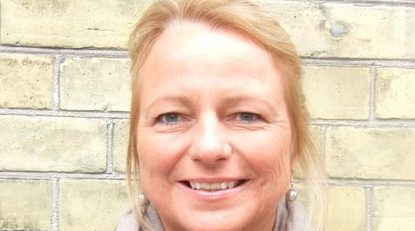
Human rights defender's story: Rikke Nöhrlind from Denmark
Rikke Nöhrlind guides the International Dalit Solidarity Network towards achieving UN consultative status, striving to address caste discrimination globally. Her efforts emphasise overcoming bureaucratic challenges to elevate Dalit rights on the international human rights agenda.
ISHR has decided to publish a series of profiles of representatives of non-governmental organisations (NGOs) fighting to obtain ECOSOC consultative status to the UN through the ECOSOC Committee on NGOs. Consultative status is required to attend and participate in many UN meetings, including those of the Human Rights Council. We hope these profiles will help expose the Committee’s dysfunction, share the struggles of human rights defenders that are repeatedly blocked from bringing their experiences and insights on critical issues to policy-making at the UN, and ultimately help secure consultative status to the UN for these credible NGOs carrying out important and valuable human rights work.
The International Dalit Solidarity Network (IDSN) submitted its application for general consultative status with the Committee on NGOs in 2007. Since then, the application has been deferred by the Committee, and IDSN has received 63 questions – all of which were posed by one Committee member: India. Many of India’s questions contain similar content, or have already been responded to by IDSN in their application or previous replies. India continues to block IDSN year after year, despite being a ‘democratic’ government with constitutional guarantees and laws which prohibit caste-based discrimination.
IDSN was founded in 2000 as an international network of civil society organisations and registered in 2003 as an international organisation in Copenhagen, Denmark. The network consists of national advocacy platforms in caste-affected countries, Dalit solidarity networks in Europe and international, national and research associates.
‘Caste discrimination is one of the biggest human rights violations in the world today; both in terms of the numbers affected and the severity of the human rights violations caused by this form of discrimination’
There are an estimated 260 million victims of caste-based discrimination worldwide, the vast majority living in South Asia.
The IDSN works on a global level for the elimination of caste discrimination, including advocacy on discrimination and violence against Dalit women, forced and bonded labour, equal access to services and resources for Dalits, and access to justice. The network produces crucial input in the form of documentation, strategic interventions and lobbying at the international level, including facilitating Dalit rights interventions at the UN.
Through engagement with the UN, EU and other multilateral institutions, IDSN has helped bring caste discrimination and ‘untouchability’ onto the human rights agenda, and has helped change policies and practices that lead to caste discrimination
‘The lack of recognition of caste-based discrimination as an international human rights issue by India has resulted in the absence of any constructive engagement in the context of the UN human rights agenda by this state.’
India appears to want to ‘punish’ IDSN for its extensive cooperation with the UN on caste discrimination. India’s position leads to hesitance by other states to engage proactively in international initiatives for the elimination of caste discrimination. For example, a set of draft UN principles and guidelines for the effective elimination of Discrimination based on Work and Descent (covering caste discrimination), published by the Human Rights Council in 2009, is still pending consideration and adoption by this body.
‘It remains a big challenge for our work that the organisation’s application for ECOSOC accreditation has not yet been granted to ensure its free and effective association with the UN.’
IDSN wants to be better able to monitor and influence the work in the UN on caste discrimination. Consultative status would provide for easy and direct access to various UN bodies, including the human rights mechanisms. Particularly, the ability to attend and observe all proceedings of the Human Rights Council and to submit written statements and make oral interventions to the Human Rights Council would greatly enable IDSN’s engagement with the UN.
‘This continued and deliberate obstruction of the granting of ECOSOC consultative status to IDSN, on no legitimate grounds whatsoever, amounts to exclusion and reprisal against a civil society organisation hindering its legitimate work with the UN.’
IDSN members and associates, as human rights defenders from affected countries, are in some cases subjected to reprisals from both state and non-state actors. Restrictions on visas for IDSN staff and several European based network members have hindered their entry into India and thereby close engagement with partners in their country situations. Severe restrictions on a number of Indian organisations on receiving foreign funds is a particularly worrying trend. These and other tactics used by India to intimidate and block the IDSN from freely associating with the UN not only constitute reprisals but are incompatible with the principles of non-discrimination, equality, participation, transparency and accountability laid out in resolution 1996/31 governing consultative status.
For more information on the work of IDSN see http://www.idsn.org
